The American public—every person born in or naturalized to this country—owns 57.4 percent of the state of Utah.
It’s some prime real estate, too. From the High Uintas to the Canyonlands, to the Grand Staircase and the iconic desert arches, Utah is perhaps America’s most striking landscape. For sportsmen, it’s also one of the most diverse. From the striped bass and panfish in Lake Powell on its southern fringes, to the trophy trout that haunt the lakes on Boulder Mountain, to the trout water on the Green River below Flaming Gorge Reservoir, Utah truly is an angler’s paradise.
Others whose passion lies in the outdoors have an equal appreciation for the Beehive State. Mountain bikers and off-roaders flock to Moab all year long to ride the trails. Skiers hit the slopes along the Wasatch Front and in Park City for some of the best snow on earth. Climbers and hikers venture afield into the desert and the mountains, and hunters chase trophy mule deer, elk, pronghorn, bighorn sheep and even moose in Utah’s wild country.
According to the Outdoor Industry Association, outdoor recreation in Utah results in $12 billion in consumer spending every year, more than 120,000 jobs worth $3.6 billion in salaries and wages annually and nets $856 million in state and local tax revenue yearly. It is a stable and growing economic driver, not subject to booms or busts. It’s a largely renewable industry—so long as the places remain where people visit to pursue their outdoor passions, the economy surrounding it will remain intact. Oh, and it employs—nationwide—almost three times the number of Americans as the oil gas industry.
Why, then, with such a vibrant, growing and relatively low-impact industry feeding state and federal coffers in Utah, are the policy bigwigs in the state so opposed to the notion of federal ownership of land in Utah? It’s the single-most important resource to this incredibly vibrant industry.
The state is home to the American Lands Council, which was founded by state Rep. Ken Ivory, and seeks to privatize or annex the vast majority of Utah’s public lands. In 2012, Ivory helped convinced the Utah Legislature to demand that the feds turn over American public lands to the state for state management.
The logic? Oil and gas leases on public lands could pay for the management of said lands, and Utah would be rid of those pesky feds shoving their laws and order down the throats of its citizens.
Reality, of course, is quite a bit different. A recent study conducted by the University of Idaho noted that, should Idaho follow Utah’s lead and somehow seize control of public land belonging to every American, the state would find itself with an annual shortfall of more than $100 million, assuming management of public lands remained consistent to its management now. Nothing says Utah wouldn’t be put in the same dubious position, especially now, with oil trading at $44 a barrel and gas at $2.38 per million BTUs. In fact, a study done last year by three Utah universities claims Utah will face an annual bill of $280 million. That, of course, is on top of the money that’s already been flushed studying the issue—the state Commission for the Stewardship of Public Lands is commissioning consultants to craft legal and lobbying strategies for the push to acquire American public lands to the tune of $2 million, and lawmakers want another $500,000 to study the potential benefits on schools should the state take over ownership. This effort is a money pit that, no matter the outcome, ends badly for Utah taxpayers.
The likely outcome of a takeover? A public lands fire sale. Privatization. Those vistas hunters use to glass for elk? Locked up. The trails bikers use to see the desert? Fenced off. Posted. Rivers? Good luck.
It’s also no secret that Utah’s prominent politicians are largely “sponsored” by the oil and gas industry through campaign donations (U.S. Rep. Rob Bishop raised $110,000 from oil and gas interests in his 2013-2014 campaign cycle, according to opensecrets.org), or they take their marching orders from groups like the American Legislative Exchange Council, the conservative bill mill that either helped Ivory craft his Utah public lands takeover bill and worked like mad to get other states to do same thing (with marginal success to date, thankfully). And the corporate advisory board for ALEC? Riddled with executives from energy giants like Exxon-Mobil (Cynthia Bergman), Peabody Energy (Michael Blank) and Koch Industries (Michael Morgan).
How about ALC? What runs its engine? According to its 2013 IRS report, it collected just shy of $210,000 from the likes of rural Utah counties and the extractive industry (including the notorious Koch Brothers) to advocate for the public lands seizure. It paid Ivory a salary of $95,000 as its president and his wife nearly $20,000 as its communications officer. Another $35,000 went to a lobbyist. That makes for a non-profit that spends more than half its bankroll—much of which was donated indirectly by taxpayers—to line the pockets of a select few while essentially trying to rob those same taxpayers of their ownership of public lands.
Unfortunately, it appears the disparate players in the outdoor world, though well-meaning, don’t have the bankroll needed to buy favor with lawmakers. And make no mistake about it—that’s how Washington works these days.
Why else would a seemingly non-controversial federal funding program—and one beloved by many who understand exactly what is has done for decades—be allowed to whither on the legislative vine and die? The Land and Water Conservation Fund—which is funded almost entirely from royalties charged on offshore oil and gas leases which are then invested in onshore conservation projects—is right up there with the Endangered Species Act, the Clean Air Act and the Clean Water Act as one of the best accomplishments in the history of the United States Congress. It literally costs the American taxpayer nothing, but contributes billions of dollars every year in revenue to local communities that benefit from LWCF projects.
Communities and counties in all 50 states have been the direct beneficiaries of LWCF funding since it was put into place half a century ago. The legislative directive was to have Congress use royalty payments from offshore drilling to fund the $900 million account every year. And that money, until Oct. 1 of this year, went to restore aging infrastructure at national parks, protect vital fish and game habitat, improve access to public lands for recreation purposes, restore rivers, acquire historical and cultural sites for the enjoyment of the people … the list goes on and on.
Sadly, only once in 50 years has the fund received its full allocation—most years, it got a fraction of it. But the spirit of the legislation was altruistic and despite congress regularly diverting its budget for other purposes, the LWCF has funded thousands of projects across the country and has, quite simply, made the lives of Americans better.

Enter Congressman Rob Bishop, the Grand Poobah of the Utah federal delegation and a brazen industry mouthpiece who despises anything federal, perhaps representative of the oil-and-gas heavy district he represents that skirts the north end of Salt Lake City and extends east and includes the not-so-progressive outposts of Vernal and Duchesne and Bonanza. Industry is king in this district, even though it also offers some of the best fishing, hunting and skiing in the country.
As the chairman of the House Natural Resources Committee, Bishop is responsible for the bringing about death of the LWCF. A recent New York Times opinion piece by western writer Timothy Egan noted that “Bishop is the villian … a grim-faced ideologue who clearly doesn’t like public land or parks.”
Egan noted that Bishop would prefer to give the royalty fees back to the oil and gas industry he so ably represents in Congress, to the detriment of millions of Americans and a recreation economy that is growing and dependent on the lands and waters he disdains.
He’s not alone, of course. The bulk of the Utah federal delegation comes at politics from the extreme far-right, investing energy into everything from defunding Planned Parenthood, banning gay marriage and impeaching the president—you know, those vital social issues so important to the vocal minority but so obviously petty and fear-based as to make the average American squirm at the notion that these issues are worthy of debate and Congressional resources.
So here’s an idea. Let’s just get rid of Utah. Kick ‘em out. Utah’s lawmakers want no federal oversight in their state, so much so that they demanded that federal lands be turned over to the state government for management. That’s not going to happen. But we can give Utah the next best thing: its independence.
But we’re keeping our public land.
This is land that belongs just as much to the little kid fishing a farm pond in Ohio as it does to Ken Ivory or Rob Bishop. Seizing public lands and then, presumably, reaping rewards from their mineral production or (more likely) their outright sale is likely illegal. The landlords—of which, if you’re a U.S. citizen, you are one—will not allow it.
But if Utah’s lawmakers want the feds out of Utah, so be it. We’ll take our commonly held real estate, all the funds the government invests in rural communities as payment in lieu of taxes, highway funds, school funds, infrastructure funds and leave the rest of Utah to its citizens and the lawmakers they chose to represent them. That amounted to about $23.5 billion in 2010, according to the U.S. Census Bureau.
Here’s what Utah would look like without its federal footprint. And Utahns are welcome to it.

The rest of that land—American land—stays with the rest of us, who value one of our country’s greatest ideas: common ownership of land for use by the people and, for a price, by industry, in perpetuity. We don’t have to ask permission to hunt or fish. We don’t have to beg the favor of a landlord to venture off into the wild on a whim. And we’re not about to simply give our birthright to the former state of Utah, no matter what it’s lawmakers demand.
We’ll continue to oversee our land, as the Americans who own it. We’ll continue to fund its management and lease it, as necessary, to American industrial interests for timber harvests and oil and gas drilling. Maybe we’ll extend the borders of Colorado on the east, Arizona on the south, Nevada to the west and Idaho and Wyoming to the north. Those floating pieces of American paradise situated within the former state of Utah? Yep, they’re ours, too. Of course, as all foreigners are allowed to do, Utahns can still visit our American public lands, but any PILT fees ($37 million in 2014) will go away. The roads, education and the infrastructure we fund in Utah? Forget that. We’ll pay for roads and upkeep within our American borders, and maybe we can split the difference where American roads and Utah roads connect.
We’ll have to kick any Utah cattle and sheep off our American land, too. Yep, those grazing fees are cheap as dirt, but we’ll only allow American ranchers to run stock on American public land. Only seems just, right? Why give foreigners such a sweet deal?
Utah wants the feds out? I say we do it. Boot Utah from the union, keep our American birthright and legacy intact and let the state’s electorate elevate Rob Bishop to Prime Minister or King or whatever they want. They can lease their own land for oil and gas drilling, or cut trees on private land for timber. They can mine for gold, zinc, copper and molybdenum beneath their own land, but not ours.
It’s what they want, right? No feds. No taxes. No laws. No interference.
Problem. Solution.
Sounds absurd, doesn’t it? Perhaps, but does it sound any more absurd than the notion of Utah actually seizing public land that belongs to all Americans and managing it on its own? Trouble is, the anti-federal sentiment in Utah is pretty serious, and the flames of that trumped-up, industry-funded “rebellion” are troublesome, so much so that they’re part of the rural culture of the state (see Phil Lyman’s middle-finger ride into Recapture Canyon).
There are solutions, of course. Nobody has ever promoted the federal government as the ideal land manager. There is certainly room for improvement, but it must start in Congress, with folks like Rob Bishop who serve, as Egan noted in his Times piece, as “bomb throwers” rather than legislators with the best interest of Americans at heart.
You want better fire suppression on public lands? Invest in them from the Congressional level. You want more access? More maintenance? Better roads? Those things don’t come cheap, and Congress sets the budget. If you want public lands in Utah to be better managed, to be healthier and more functional, you actually have to pay for that (maybe by upping criminally low grazing fees or demanding that industry pay its own way? But then, that would fly in the face of about 25 percent of Bishop’s campaign warchest, wouldn’t it?). Bishop, instead, is content to block one of the best ideas for public lands infrastructural improvement—the LWCF— from getting a vote in committee because he disdains the idea of federal oversight in his state.
Truth be told—and this is terrifying—the future of the LWCF, and perhaps of public lands management all across America, is up to Utah’s 1st Congressional District and the industry lapdog they’ve elected to represent them. Rob Bishop has a lot of clout. A lot of power.
Another truth. Trying to seize assets that belong to every single citizen of this country is decisively un-American. This land truly is our land. It doesn’t belong to the Utah Legislature, Rob Bishop, Ken Ivory or Phil Lyman. It belongs to that little kid casting an Ugly Stick stuck to a Zebco 33 over the little farm pond for central Ohio bluegills. It belongs to the New York City shut-in, the kid from Compton, the mother of three from Milwaukee. This land isn’t yours to take.
The first step in improving how our public lands are managed—for all Americans—might be to clip a few sets of wings in Utah’s federal delegation and give good ideas a chance to work rather than letting them die because of the rigid dogma of a select few.
Is Utah up to the challenge?
* Editor's note (10/30). 'all' changed to 'vast majority' to more accurately reflect the stated mission of the ALC.








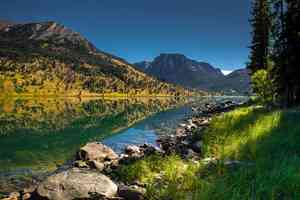



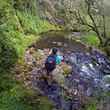
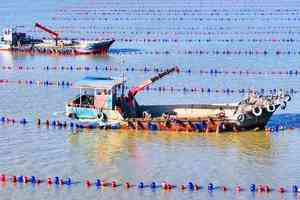



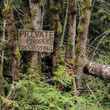




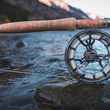




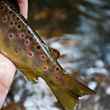
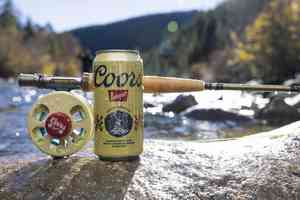

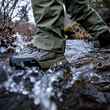


Comments
Jack Irvin replied on Permalink
We must take the money away from the politicians, there must be campaign spending limits, we must stop the flow of money that buys our political offices, it is nothing more than legalized criminal acts
BG replied on Permalink
It's the worst kind of person who shouts from his roof that half of his neighbor's property is his own and by dangit he'll take it as his own.
The only place that line of thinking leads to is war and one upmanship where Utahns start looking to take from PA.
Here's a thought: shut your mouth and stay in your own yard. Until every state, PA included, has the same share of their lands confiscated by the USG as what UT has, then no one has the moral high ground on this issue except UT.
In fact, it's precisely this arrogant attitude of yours that has so many in UT wanting to tell your type where to shove it.
CJ replied on Permalink
Perhaps the fact that you have shit for brains is why I need to remind you that citizens of Utah are also citizens of the United States.
So, right now, with so much of the land within Utah's borders in federal hands, Utahns DO have ownership of that land. If it were ever to turn over to state land, it'd be in private hands -- the hands of the extractive industry, no doubt -- within 12-18 months. You'd have no access. Your ownership of that land? Gone forever.
Let go of your backwards ideology and use your goddamned head. Look at who these people are. They are bought and paid for by the oil and gas industry. It's all down on paper.
For your sake, for your children's sake, stop being so fucking dull.
BG replied on Permalink
Tell you what, I'll meet you half way: propose that 50% of every state's land be confiscated by the USG.. and I'll concede you have a point worth listening to. Until then it's just arrogance.
MJ replied on Permalink
Ummm, just FYI: The land never belonged to the State of Utah in the first place, so talking about confiscation is a red herring. Utah was a territory of the US before it became a state. The lands that the federal government retained management of were lands that the state didn't want, that had not been homesteaded. The Utah State Constitution specifically disclaims any future claim to these lands. Read it. Know your history and your facts before you comment.
But as pointed out, as an American citizen, you own these lands just as much as someone from Pennsylvania.
BG replied on Permalink
Can you support this with a reference? I scanned through the relevant sections of the UTCON and don't see anything like you are mentioning.
Bill Voigt replied on Permalink
[Right to public domain disclaimed. Taxation of lands. Exemptions.] Second:--The people inhabiting this State do affirm and declare that they forever disclaim all right and title to the unappropriated public lands lying within the boundaries hereof, and to all lands lying within said limits owned or held by any Indian or Indian tribes, and that until the title thereto shall have been extinguished by the United States, the same shall be and remain subject to the disposition of the United States, and said Indian lands shall remain under the absolute jurisdiction and control of the Congress of the United States. The lands belonging to citizens of the United States, residing without this State shall never be taxed at a higher rate than the lands belonging to residents of this State; nor shall taxes be imposed by this State on lands or property herein, belonging to or which may hereafter be purchased by the United States or reserved for its use; but nothing in this ordinance shall preclude this state from taxing, as other lands are taxed, any lands owned or held by any Indian who has severed his tribal relations, and has obtained from the United States or from any person, by patent or other grant, a title thereto, save and except such lands as have been or may be granted to any Indian or Indians under any act of Congress, containing a provision exempting the lands thus granted from taxation, which last mentioned lands shall be exempt from taxation so long, and to such extent, as is or may be provided in the act of Congress granting the same.
SLChris replied on Permalink
I work in real estate law. All land ownership within the United States is derived from and through the Federal Government of the United States - even property within the original 13 colonies that was owned prior to the Revolution was re-patented by the US Government to the owners after the War. For any given piece of land in this country, you can trace the title back to a federal patent. Whether or not you think that's how it "should" work, that is how it DOES work.
TH replied on Permalink
As a Utah Resident, please understand that a large percentage of us would nothing more than to see my ass-hat of a representative Congressman Bishop and most of our State Legislature get hit by a bus. Public Lands are what I love about this State. If it were just the Republican Moron's here - I would leave in an instant.
SLChris replied on Permalink
YES! This. Utah's demographics are shifting so rapidly right now as more and more people - many motivated by the unparalleled access to outdoor rec - move here from out of state, but it will take time for that to result in an undoing of the extensive gerrymandering of voting districts in Utah which will lead to a more accurate reflection in our federal representation.
That said, this piece is misleading (either by design or by ignorance). For example, it opens by stating that 57.4% of Utah's territory is federally owned, but then shows a graphic that leads the percipient to understand that far more than 60% of the state is public land. This is true - but the graphic shows privately-owned lands in red, suggesting that the rest falls under one lump category: federal land. This conflates Federal public lands with State public lands (which make up at least 1/9 of Utah's total acreage).
TL;DR: If you want to have a frank and honest discussion about the issue, you have to be frank and honest.
richf replied on Permalink
About 60% of my county is public land, managed by skilled professionals at the Forest Service and BLM. We like it just fine. You want a state that has almost no public land, move to New Jersey. I will help you pack.
Anonymous replied on Permalink
How many other states are owned at such a high percentage by the federal government?
Anonymous replied on Permalink
The Feds only own 2.1% of Pennsylvania? Maybe you should consider donating 50% more of your state to the feds...then you can comment on Utah..http://m.deseretnews.com/top/2318/0/From-03-to-811-What-percentage-of-ea...
Utahn replied on Permalink
I am a 5th generation Utahn and I agree with the author. If we let Rob Bishop and some of the other idiot politicians here in Utah have their way we are doomed, and our beautiful public lands will be destroyed.
CN replied on Permalink
He actually can comment on Utah. All Americans hold ownership in our public lands. To transfer these lands to the state is a foolish mistake. The author is correct -- if Utah does not want to have these lands in common ownership, they should keep what is rightfully theirs and succeed (or we really should just give them the boot). They have no right trying to take what ALL Americans own and take it for the wealth of the few.
G Hyland replied on Permalink
This is a great article! I love it. I'm from Utah and the legislators here are criminal. What makes the west such an enviable place is the public land - too bad the midwest and east took all the land for agriculture and development; there's no going back and we certainly don't want to reach a place of no return. Lets also not forget that much of the public land we have today was given to the United States because the owners, states, territories, individuals, etc., were delinquent.
Ty, you hit the hammer on the head with federal funding. Bernard Devoto termed it "Home Rule" which means 'we want federal help without federal regulation.' It's a very convenient philosophy. This whole idea of "taking" federal lands is fraudulent at best if you understand the history. If you are interested: http://thesouthwestjournal.com/tag/ken-ivory-duty-to-dispose/
Ty Hansen replied on Permalink
I'm glad this piece has generated some interest, and yes, I'm FROM Pennsylvania. That said, I just relocated to western Wyoming (no, not Jackson). And I grew up in Montana. I understand western politics (education is wonderful thing), and I've seen it in play my whole life. Rural westerners love the idea that they're independent and put-upon by the feds, but when it comes time to consider raising grazing fees or upping their taxes so we can manage all those lands they claim as their own, they start talking about "government overreach" and the like.
We all have a stake in public lands, even if we don't live in their midst.
But some are missing the point. We had an opportunity to preserve a fund that doesn't cost taxpayers, even the "home rulers" from Utah, a single penny. And that fund could have been used to make communities safer from wildfire, improve hunting and fishing access, protect important cultural sites, etc. But, because of dogma, that fund went away.
As I said in the article, it's up to Utah to tell Rob Bishop to get the hell out of the way. He's bought-and-paid for, and not by those who elected him.
Anonymous replied on Permalink
By the way, I'm not pro-Bishop. I find many of the GOP just as disagreeable as you all here do.
Also, I am not anti- clean air, open spaces, etc... not at all. I get frustrated at how our communities (everywhere almost!) are built so tightly and developed so much. I want open land and clean air as much as most any Democrat.
I would (and many like me) find much less to disagree with if:
1. the feds (and people in other states) would stop butting into our lives at every turn trying to tell us how to live in every aspect
2. things like public lands were administered equitably... that is, if a similar amount of land in every state were reserved... that is, if we all played by the same rules and had the same up- and down-sides... as it is, if you are from another state I frankly don't give a damn how much you like to fish... you want more fishing space? Push your home state to set aside and (re)develop lands for that purpose... stop telling the rest of us how to live. The alternative? Push national policy that sets aside and (re)develops equitable amounts of land in every state.
In other words: 1) live and let live, and 2) don't be a hypocrite, walk the walk
If you are unwilling to follow those 2 simple life rules then you will continue to be frustrated that all the "morons" like me "just don't understand".
Bill Voigt replied on Permalink
What is at stake is our individual freedom. On our federal lands we can hunt, fish, hike, backpack, ski, and even gather firewood to heat our homes. Free or for a nominal fee. Wholesale transfer of federal lands would result in privatization of our lands. Utah recently auctioned 2400 acres of state land. One parcel was a scenic property near Bryce Canyon Ntl Park. We need to preserve our right to roam on our public lands. To quote T Roosevelt, "Here is your country. Cherish these natural wonders, cherish the natural resources, cherish the history and romance as a sacred heritage, for your children and your children's children. Do not let selfish men or greedy interests skin your country of its beauty, its riches, or it's romance.
Cmydob replied on Permalink
Life long Utah resident and conservative here. I couldn't agree more. The thought of the state taking over the federal lands is horrifying. Just check out how our lovely legislature dealt with stream access. It's a good measure of how much access we would have to state owned lands before the state sells them, because we all know they will.
Having said that you make a few big errors. First the wonderful fishing we enjoy is mostly managed and funded by the state albeit on federal lands. The same goes for wildlife management. Next it's the local state or local governments that provide all the auxiliary support for those who visit the federal lands. We do however benefit greatly from all those visitors.
Steve K replied on Permalink
I'm confused by the map/graphic. The sentence that precedes it says "Here’s what Utah would look like without its federal footprint". The caption underneath says "Utah minus it's [sic] publicly-owned land".
So is the map actually showing state, county and municipally-owned land as well as Federal land?
Also, does the red area represent the government-owned lands, or does the red area represent the private holdings?
Chad Shmukler replied on Permalink
Apologies, Steve. The map does indeed need to be updated with a legend. For clarification, the areas in red are privately held lands.
Steve K replied on Permalink
OK, so the white area may include not only federally-owned land (e.g. Zion National Park, the federal courthouse) but also state-owned land (Kodachrome State Park, or the Utah State Capitol) as well as county land, city parks and streets, etc.
Other than First Nations (native Americans), the history of the American West is the history of governments granting land ownership to private citizens. In OK, it was homesteading and the land rush. In CA, it was the king of Spain granting land to various ranchos. Across the west, a 20 mile swath was given to the developers of the transcontinental railroad. I'm not saying don't worry about it; I'm sure privatization and resource extraction are major issues. I'm just saying, don't single out Utah to be unique. Every state deals with this.
William Penn got a land grant from Charles II to build your town.
Chad Newman replied on Permalink
Don't single out Utah??? are you serious??? Utah's Congressional Delegates are behind this and Utah continues to re-elect them. There are NO other vigilant proponents of this asinine position. YES, WE NEED TO SINGLE OUT UTAH!
Steve K replied on Permalink
Chad N, my words in context were "don't single out Utah to be unique". They are just approaching the issue later in the game that most other states that used to be in a similar position. Yes, the statement about privatizing ALL PUBLIC land would indeed be a unique position - - if it was true.
The article above says: " American Lands Council, which was founded by state Rep. Ken Ivory, and seeks to privatize or annex all of Utah’s public lands." There was no link provided in the article to back up that assertion. I googled American Land Council and found their policy statement, and it sounds like they are talking about only SOME of the FEDERAL lands, not ALL of the PUBLIC (federal, sate, local) lands. Here's an excerpt:
"1. WE URGE THE TIMELY AND ORDERLY TRANSFER OF FEDERAL PUBLIC LANDS TO WILLING STATES FOR LOCAL CONTROL THAT WILL PROVIDE BETTER PUBLIC ACCESS, BETTER ENVIRONMENTAL HEALTH, AND BETTER ECONOMIC PRODUCTIVITY;
2. WE SUPPORT EXCLUDING EXISTING NATIONAL PARKS, CONGRESSIONALLY DESIGNATED WILDERNESS AREAS, INDIAN RESERVATIONS, AND MILITARY INSTALLATIONS FROM THE TRANSFER"
http://www.americanlandscouncil.org/policy_statements
Chad Newman replied on Permalink
Keep on doing your research there mister. You will eventually find the truth. We fought this long and hard here in Montana this last legislative session (and won -- hands down). the enabling language for each and every western state, though a little bit different, clearly states that the federal lands are to remain in federal ownership. The states have no claim to these lands. Each and every state agreed to these terms when applying and accepting statehood. These lands are NOT to be transferred to the states. PERIOD. If you take a look at all of the Midwest and Eastern States, they were granted claim to all of the land. How much remains in public ownership? It sounds to me like you may be better off moving back east. Ken Ivory is funded by the Koch Bros -- they want to extract all of the oil, gas, coal, and minerals from OUR AMERICAN OWNED lands. Keep doing your research there buddy. You will figure it out soon enough -- oh, and by the way, you might want to google all of the ALC, PERC, ALEC and/or non-profits with "freedom" or "American" in the title. All are funded by the Koch Bros. Ken Ivory is full of Shit. If you believe he is telling the truth, I have a gold mine in Montana to sell you. Your Utah legislators have NO RIGHT managing the lands owned by all Americans. Maybe you should get your Utah legislators to succeed from the union. I will help you guys build the fence.
Steve replied on Permalink
Chad:
1. I did not dispute, in fact I affirmed, that they likely want to do resource extraction (mining, timber, oil and gas, etc.), and yes you should be concerned.
2. I didn’t say that every state had land transferred to it from the Feds. I said that the history of the American West is the history of governments [nations, states, counties, cities] granting land ownership to private citizens. In this, Utah is not unique.
3. The original author stated that the ALC wanted “seeks to privatize or annex all of Utah’s public lands”. That means city streets, jails, the state capitol, the local public works yard, etc. While that statement (and the provocative title to the article) makes for great passion, it was a drastic significant overreach, and unnecessary to make the point, and diminishes the credibility of the article. Why succumb to hyperbole? Let the facts speak for themselves.
4. I am not from Utah, I am from California. We successfully fought the destruction of Mono Lake by speaking the facts, not by making a caricature of the issues.
Hatch Magazine is a great read, and I hope they will edit for accuracy as well as for attitude.
Bill Voigt replied on Permalink
Steve, Ken Ivory and his cronies are not "talking about Some of the Federal lands. They are talking about Most of the federal lands. Many of us choose to live in the West because we can access our National Forests and BLM lands. Many more visit our states to access their National Forests and BLM lands. History has shown states sell their public lands. The state of Nevada, for instance, has approx 3000 acres left of the 2.7 million acres granted upon statehood. I suggest you read "This Land Was Your Land" by Matthew Copeland. Wholesale transfer of federal lands to the states would result in the Texasfornication of our western states. Pump jacks, high fences, and private lands.
Anonymous replied on Permalink
This is what happens when you vote for anybody with an "R" behind their name these days. Wake up sportsmen, these people are your worst enemy! TR would be a democrat today!
Kendra Houser replied on Permalink
I am a Utahn who is cheering for this author and article. Just give the few of us who are sane time to get out before the crazies take over the state.
Richard Shelton replied on Permalink
I am a third-generation Utah resident, and I could not agree more with this article. Sadly, Utah has been so badly gerrymandered by these "take back our land" Republicans (even though the land was never Utah's in the first place) that it is impossible to elect a sane, let alone honest, fed. rep. As for Ken Ivory, he gives pond scum a good name. Keep fighting for the American peoples lands, we need all the help we can get against these greedy land-grabbing crooks.
Pages